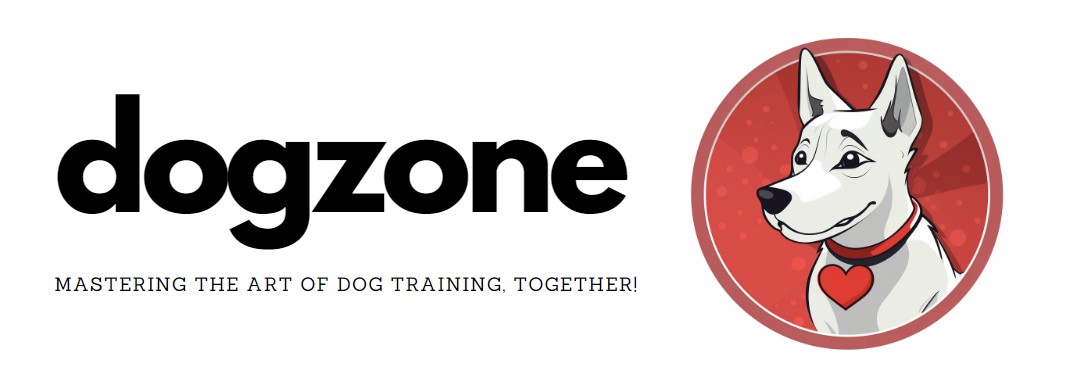In our modern age of climate change (and climate alarmism) we have more vegetarians and vegans than ever. Many see this as a healthful and excellent way to help the environment.
For us it takes only a slight amount of effort to ensure all our nutritional requirements are met. Research into human nutrition is advanced, but did you know our understanding of canine nutrition is still very limited and under the influence of huge pet food manufacturers such as Mars, Nestle, and Colgate Palmolive?
As a qualified pet nutritionist myself, I hope to discuss both the pros and cons of feeding a dog (or cat) a vegetarian or vegan diet, without judgement.
Many vegetarians choose to subscribe their dog or cat to a meatless diet. It’s easy for regular meat eaters to throw their arms in the air in protest, for good reasons, but did you know there are benefits to feeding dogs vegetarian foods?
I’ll cover these benefits through the course of the article, as even if you feed your dog a “meat” kibble you can benefit from this information. Most dogs in Australia are fed a predominantly grain or vegetable kibble, and yours could be one of them!
Why would you feed your dog a vegetarian diet?
The reasons behind feeding your dog a vegetable based diet vary from person to person. Often personal ethics, the belief that this way of eating is healthier, and a lessened environmental impact are cited as the reasoning behind the dietary choice.
Some people though, are concerned a vegetarian or vegan diet is not healthy or acceptable for a predominately carnivorous creature. Cats are factually carnivores, and even though it’s debated with dogs we can all agree dogs are more similar to cats than they are to us.
Others may argue it is inhumane to feed a cat or dog in this way.
Regardless of personal convictions or beliefs there are facts and studies that have been made available to the public which contain all the information to help you personally make the best decision when considering a dietary change of this nature for your pet.
Is a cat a carnivore?
The feline side of the carnivore debate is undisputed. Cats are factually carnivores, being able to survive on animal ingredients alone.
That being said, evidence suggests a cat can live a healthy life on a vegetarian or even vegan diet. However, this does require a significant amount of research and effort to ensure adequate nutrition is being provided to your cat.
As a qualified pet nutritionist I would not recommend a vegetarian diet to a cat, or a dog, but it is important to be realistic of the facts. Many pets fed a vegetarian diet are fed better than most pets on a regular convenience kibble – I say this from many years involvement in the pet food industry.
Is a dog a carnivore?
Although dogs are thought to be carnivorous creatures, the truth is in the wild when left to their own devices they are decidedly omnivorous.
In the science world, this can be termed a scavenging carnivore. A more accurate term is facultative carnivore, which is a meat-eating animal which will also eat other foods.
The uncertainty around a dog being a carnivore, omnivore, or somewhere in-between, is the reason why most commercially prepared dog foods are made significantly from vegetables or grains.
If you feed your dog a commercial dog food it is very likely the majority of their diet is not meat.
Now, if you consider most dog foods being in the most part a component of corn, rice, wheat, or in the case of grain free potato, tapioca, or legumes, then this suggests a vegetarian or vegan dog food can be at least as good if not better.
In human nutrition studies we know the nutrients from animal sources can have counterparts in the vegetarian world. In fact, all amino acids required by a dog under AAFCO standards (American standard for pet foods) can be substituted with non-meat alternatives.
Unfortunately the downside to this, is there is little research as to whether a dog (or cat) can effectively process those nutrients in the same way we can.
There is also a vast difference between a poor vegetarian commercial dog food and a good quality vegetarian diet. We know how bad some kibbles are, don’t we? A bad vegetarian dog food can be just as bad, and potentially worse.
Not catering for the nutritional needs of your dog, vegetarian or meat-based, will rarely cause immediate symptoms. Often our pets develop dietary-related illnesses such as organ disease or diabetes after years of being fed with a given product.
This is why we need to consider whatever type of diet we feed our dogs.
I have found vegetarian dog feeders to claim the oldest dog in the world to be a vegan dog, living to the age of 27. The “oldest dog in the world” part does not appear to be true, with a handful of dogs living longer, but it is still a very impressive take-home fact.
Evidence suggests a dog can live a healthy life on a vegetarian or vegan diet, but we must also keep in mind we do not hear about the many who don’t.
It is therefore important, if we choose to follow our beliefs and feed our dogs a plant-based diet, then we must ensure they receive all the nutrition they need, in the best quality forms.
Understanding the nutritional requirements from a vegetarian dog diet
There are three specific and identifiable nutrients which are essential to your dogs health which must be derived through the ingestion of sources rich in them. These are vitamin A, vitamin D, and taurine.
- Vitamin A and D cannot be produced within the animal. As humans our skin synthesises vitamin D from the sun’s rays. Your dog does not have this ability. To get even more specific the exact compound of vitamin D that your dog requires is D3, which is derived from animal sources.
- Generally it is understood taurine can be produced within a dogs body so long as the right nutritional ingredients are provided. More recent evidence has shown this may not always be the case, with some dogs becoming susceptible to DCM (Canine Dilated Cardiomyopathy). A recent revision to AAFCO standards for nutrients in dog food now requires taurine in a canine diet. Cats, on the other hand, cannot produce taurine at all. A deficiency in this vital nutrient can lead to blindness or even death.
Your pet, whether cat or dog, has a variety of needs in addition to the two essential nutrients that were outlined previously.
In addition, both cats and dogs have a very high protein demand which can be very hard to meet through a vegetarian based meal plan. They also have a demand for fats.
Both animals have shorter digestive tracts than us, which means less time to extract the nutrition they need from various foods. Cats and dogs absorb nutrients from animal ingredients far more effectively than other sources of the same nutrients.
There is good news for those who would still like to provide an adequate and plant based diet for their pet. Many pet food companies, including Royal Canin, have extended their product lines to offer vegetarian pet foods.
In Australia we have Veganpet and BIOpet Vegan, with clear differences between the two. I have linked the website Pet Food Reviews as an excellent resource for understanding both the nutritional requirements of our dogs and how these can be abused under Australian (and American) pet food standards.
These commercially prepared foods are researched and formulated to meet your animals needs fully as long as they meet AAFCO standards for nutrition.
If you have decided to feed a vegetarian dog or cat food, or vegan, yet do not feel confident in providing the correct nutrition, then at least opt for one of the above formulated pet foods. At least until you feel comfortable with other options.
Do you have a vegetarian pet?
Frequently Asked Questions about Vegetarian Diets for Dogs
These are the most common questions about vegetarian (and vegan) diets for dogs:
The most common reasons for owners to choose a vegetarian diet are for ethical or environmental reasons, but such a diet may help with certain health issues. This may include allergies (particularly to meat or grain sensitivities), weight management, and digestive problems.
The biggest risk is nutritional deficiency, especially in essential amino acids and vitamins like B12. Dogs also need certain nutrients that are primarily found in animal products, such as taurine and carnitine, which can be challenging to obtain from a plant-based diet. Although some nutrients can be sourced from alternatives to animal products, these may have a lower absorption rate.
There are a few vegetarian and vegan diets available commercially in Australia which meet AAFCO standards for “complete and balanced”, so these should ensure your dog gets all the nutrients they need. Alternatively, work with a veterinarian or canine nutritionist to create a balanced and complete vegetarian diet for your dog. This may involve incorporating certain supplements or fortified foods to ensure your dog gets all the essential nutrients they need.
While it is possible for dogs to survive on a vegan diet it is often not recommended due to the complexities in ensuring your dog gets all necessary nutrients, especially taurine and vitamin D, but also fats. It is important to work closely with a veterinarian or animal nutritionist to ensure your dog’s health is not compromised. A significant amount of research would be required on your part into canine nutritional requirements.
It is important to note a dog may not absorb proteins from plant sources as efficiently as animal sources. Good sources of vegetarian protein for dogs include soy, beans, lentils, quinoa, and certain grains like rice and oats. It is important to ensure these protein sources are easily digestible and contain all the essential amino acids your dog requires.
Yes, there are several vegetarian dog food brands available in Australia such as BIOpet Vegan and v-planet, but it is important to choose a brand that is nutritionally balanced and meets all your dog’s nutritional requirements.
Any change in a dog’s diet may cause digestive issues, particularly if they have been fed the same diet for a long period of time. Slowly transition your dog’s diet over the course of several weeks by gradually incorporating more vegetarian sources of protein and reducing the amount of meat in their diet. Monitor your dog closely during this time for any signs of digestive issues or nutritional deficiencies. In addition, it is worth having your dog monitored by your veterinarian as this may highlight any deficiencies over the coming weeks.
While some dogs can thrive on a vegetarian diet, it is not suitable for all dogs. Dogs with certain health conditions, such as heart disease or kidney problems, may require careful consideration on your part as a risk of not feeding animal products may lead to these health conditions worsening. Additionally, puppies and pregnant or nursing dogs have higher nutrient requirements that may be difficult to meet with a vegetarian diet.
If you are concerned about the ethics or environmental impact of feeding your dog meat, there are alternative options available. Some dog food brands use ethically sourced meat, while others offer insect-based protein options that are more environmentally sustainable. The Australian brand Feed for Thought uses Black Soldier Fly Larvae as a sustainable protein source.
Further resources
- Can cats and dogs be vegetarian? PETA (People for the Ethical Treatment of Animals)
- The ethics of veggie cats and dogs. The Guardian, 24 May 2010



Leave a Reply